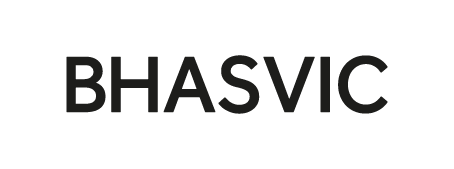Health and Social Care AAQ
Online Application Selection: Advanced National Certificate in Health & Social Care AAQ Level 3
Qualification at End of Year 2: Advanced National Extended Certificate in Health & Social Care AAQ Level 3
During Year 1 you will study for the Certificate, for Year 2 you will progress to the Extended Certificate
Exam Board: OCR AAQ; Specification
Course Entry Requirements: 4 in English Language GCSE or 4 in English Literature GCSE. One of the two exam units focuses on anatomy and physiology for health and social care. Grade 4 in Biology or a science is recommended as good preparation for this content, but it is not essential. Please make sure that you have understood the overall entry requirements to study at BHASVIC. These are available here and outline the GCSE grades you need to take up one of the Study Programmes at the college.
Length and size of qualification: 2 year single course
Timetable hours: 4.5 hours per week
Assessment method: 2 x 1.5 hour exams plus two pieces of written coursework
BHASVIC Department: Sociology and Health & Social Care

Alison Teagle, Head of Department
Read our guide to BTECs and AAQs at BHASVIC
What will I study?
You will study principles of health and social care, taking a person-centred approach to care and supporting people with mental health conditions in the first year; and in the second year will focus on anatomy and physiology for health and social care as well as two option units (two from supporting people with long-term health conditions, investigating public health, supporting people in relation to sexual health, pregnancy and postnatal health and supporting healthy nutrition and lifestyles). This means you will learn the theoretical basis for providing good quality care, examine how practitioners use legislation, policies, and effective communication to implement professional practice and about the impact of practitioners on health and wellbeing. Coursework is based around applying knowledge learnt to a Health and Social Care setting, enhancing the vocational element to the course. The College also supports students in finding work experience placements. Some second-year students may have the option of a hospital placement at Brighton and Sussex University Hospital.
Is this course right for me?
This course is ideal for students planning on a career within health and social care. The Cambridge Advanced National Extended Certificate is equivalent to one A level (2 years) Students must have a commitment to continued assessment via course work. Many of our students undertake relevant work experience placements which are often a requirement for higher education courses, and all students have the opportunity to attend talks with health and social care professionals, such as nurses, social workers and occupational therapists. For each unit there is plenty of content to learn, and for coursework units, there are regular deadlines that need to be met, so students need to be very organised. There are two exams, plus four pieces of coursework. Students often take Health and Social Care alongside Psychology, Sociology, Biology and Sport, among other subjects.
Where next?
There is a growing demand within this sector and there are a diverse range of opportunities where students can make a real difference to the lives of others including adults, young people and children. Studying Health and Social Care can take students in a wide range of directions depending on where their interests lie. Future related careers available in the healthcare and education sectors could include nurse, midwife, social worker, mental health worker, counsellor, personal assistant, early years teacher and play therapist. There are opportunities to progress into management of services and to continue training with additional qualifications in the workplace. This subject is ideal for progression onto vocational degrees at university and also provides an excellent foundation for anyone wanting to go directly into an apprenticeship or employment. During your studies, you will develop an awareness of the importance of values and skills for working in this sector that employers will be looking for. Useful websites to research careers and wider progression options could include Skills for Care, Health Careers, All About Careers and The Apprenticeship Guide.
ApplyLast year, 62 students went onto study healthcare at 28 different universities, 5 students went straight onto teaching degrees.
Our science students can choose to study Health & Social Care or a combined science degree such as Natural Sciences, Health & Social Care or Chemical Engineering.
Student went onto a wide range of degrees including Social Work, Education, Nursing, Midwifery, Paramedic Science & many more.
Health & Social Care BTEC is an ideal qualification for students thinking of a health-care, social work or teaching related degree. It combines theory with practical skills & work experience.
Should I study Healthcare / Education / Social Science at degree level?
With such a range and variety of choice there are plenty of opportunities to study for a career in the public sector.
There is a huge range of healthcare degrees:
- Nursing and specialism e.g. Adult
- Midwifery
- Podiatry
- Pharmacy
- Physiotherapy
Entry Requirements
Will vary dependent on the degree pathway that you wish to take.
These degrees are vocational and usually dependent on interviews.
Top Universities for Health / Education
Cambridge, Bristol, Bath, Exeter, Glasgow
Sussex, Surrey, Sheffield, Keele – all very high student satisfaction scores
Aston, Portsmouth, Essex, Liverpool Hope - all with top graduate prospects
Many of our students choose a combined degree - applications from our students have included:
- Primary Teaching with Optional Subject Specialisms (QTS)
- Children's Nursing
- Primary Education, Upper Primary (5-11), QTS
- Speech and Language Therapy
Example entry requirements (please check):
A-Level/BTEC equivalents:
Liverpool Nursing B,B,B
Oxford Brookes Social Work UCAS Points: 104
UEA Social Work UCAS Points: 120-147
Southampton Nursing (Child) B,B,B
Brighton Nursing B,B,C
Why not try a foundation degree or higher apprenticeship?
Sheffield Hallam Nursing (Adult) (Foundation) 64 UCAS Tariff points
Some examples of Health & Social Care-related degrees that our BHASVIC students have gone onto study in the past few years are:
- Applied Social Sciences
- Childhood and Youth: Theory and Practice
- Counselling and Mental Health
- Early Childhood Studies
- Primary and Early Years Education (with Qualified Teacher Status)
- Social Policy
- Social Work
- Adult Nursing
- Children's Nursing
- Midwifery
How BHASVIC helps: We have a wide range of information and resources to support students applying for university including subject area guides, personal statement and UCAS resources, super-curricular activity guides, open day and bursary information. We also cover university research, careers, art foundation and all other destinations in depth in tutorial and students can choose an appropriate pathway for them in the second year from UCAS, Employability & Enterprise, Visual Arts, Oxbridge and Medics. Our Spring Futures Fair brings in a huge number of university visitors with workshops and information stands and departments will bring speakers in wherever possible.
A health studies or education degree helps you develop the skills to follow a career in health, social care, leisure or teaching.
Jobs where a Health / Education degree would be useful include:
- Further education teacher
- Health promotion specialist
- Medical sales representative
- Counsellor
- Personal trainer
Career Prospects
Many Health & Social Care students go into jobs in social professions such as education, community and youth work, housing and social work. If you choose to go onto medicine and healthcare there are lots of different specialties to choose from. Nursing is the subject with the most degree graduates. We'll always need nurses in this country, so it's no surprise to see that the very large majority of nursing graduates go on to become nurses, and that starting salaries are pretty competitive.
Achieving Qualified Teacher Status (QTS) through completion of the PGCE or equivalent postgraduate qualification is a popular route for education graduates. Just under half of education graduates in employment in the UK six months after graduation are working as primary and nursery education teaching professionals. A further 8% are working as teaching assistants.
Local Market Information
NHS Apprenticeships
Earn, learn and make a difference with an NHS apprenticeship. Our apprenticeships offer routes into many of the more than 350 NHS careers through a mix of on-the-job training and classroom learning.
What you need to know about NHS apprenticeships
- apprenticeships take between one and five years to complete
- over a week, you're likely to spend the equivalent of four days on work placement and one day at a training centre or college
- you'll develop your skills
- you'll gain a competence qualification (based on what you can do in the workplace) and a knowledge qualification, or a qualification combining both
Apprenticeship levels
NHS apprenticeships are available at several levels:
levels 4 and 5 - equivalent to a foundation degree and above
levels 6 and 7 - equivalent to a full bachelor’s or Master’s degree
Entry requirements
Entry requirements will depend on the employer and the type and level of apprenticeship. To start a level 5 or 6 apprenticeship you're likely to need A-levels, equivalent level 3 qualifications or relevant and sufficient experience.
Types of apprenticeships
With more than 350 different NHS careers, there are hundreds of different jobs which can be done through an apprenticeship. Here are just a few:
- Senior therapy support worker (level 3)
- Associate ambulance practitioner (level 4)
- Business administrator (level 3)
- Dental nursing (level 3)
- Informatics (levels 2 to 7)
- HR consultant (level 5)
- Healthcare science assistant, associate and practitioner (levels 2, 4 and 6 respectively)
- Maternity support worker (levels 2 and 3)
- Nursing associate apprenticeship (level 5)
- Registered nursing degree apprenticeship (level 6)
- Operating department practice degree apprenticeship (level 6)
- Pharmacy services assistant (level 2)
- Podiatry degree apprenticeship (level 6)
How BHASVIC helps: We have an excellent Careers Hub and careers advisors who are available for appointments through student services. Local jobs are advertised and they will advise on skills and specialist areas such as degree apprenticeships. Students can choose an appropriate pathway for them in the second year from UCAS, Employability & Enterprise, Visual Arts, Oxbridge and Medics. Our Spring Futures Fair brings in a huge number of careers & apprenticeship visitors with workshops and information stands and departments will bring speakers in around the subject area.
You will gain many transferable skills studying Health & Social Care that will be valued in the workplace including:
Teamwork, Technical ability, Problem solving, Social Skills, Organisation, Numeracy, Communication, Attention to detail, Administration, Analytics, Discipline
Local Skills
The Local Skills agenda considers job prospects and employment in our local area of Sussex. Many of our students will contribute to the National Skills agenda and go onto find a career in a wide range of sectors. For students in Sussex our local skills are identified as the following sectors:
- Construction
- Creative & Cultural
- Digital (includes IT and Technology)
- Engineering & Manufacturing
- Healthcare (includes Bio Life Sciences and Pharmaceutical)
- Visitor & Hospitality
- Land-based (includes Agriculture and Viticulture)
- Green Skills
Degree choices that match the Local Skills agenda for Healthcare include:
- Health & Social Care with Study Abroad
- Exercise, Nutrition and Health
- Nursing Child and Mental Health
- Optometry
- Osteopathy
Career choices that match the Local Skills agenda for Healthcare include:
- Adult Nursing
- Midwifery
- Paramedic Science
- Pharmacology and Innovative Therapeutics
- Pharmacy
How BHASVIC helps: Skills Week in A1 helps students build skills in the workplace and a focus on developing skills through tutorial in A1 and A2 supports students in writing outstanding Personal Statements and CVs. We know our students have already gained a wide variety of skills at home and with extra-curricular activities and will increasingly take up jobs. Our focus is on supporting them to evidence skills already gained, identify gaps and ensure that they transfer that to CVs and applications. This is in partnership with every curriculum area.
